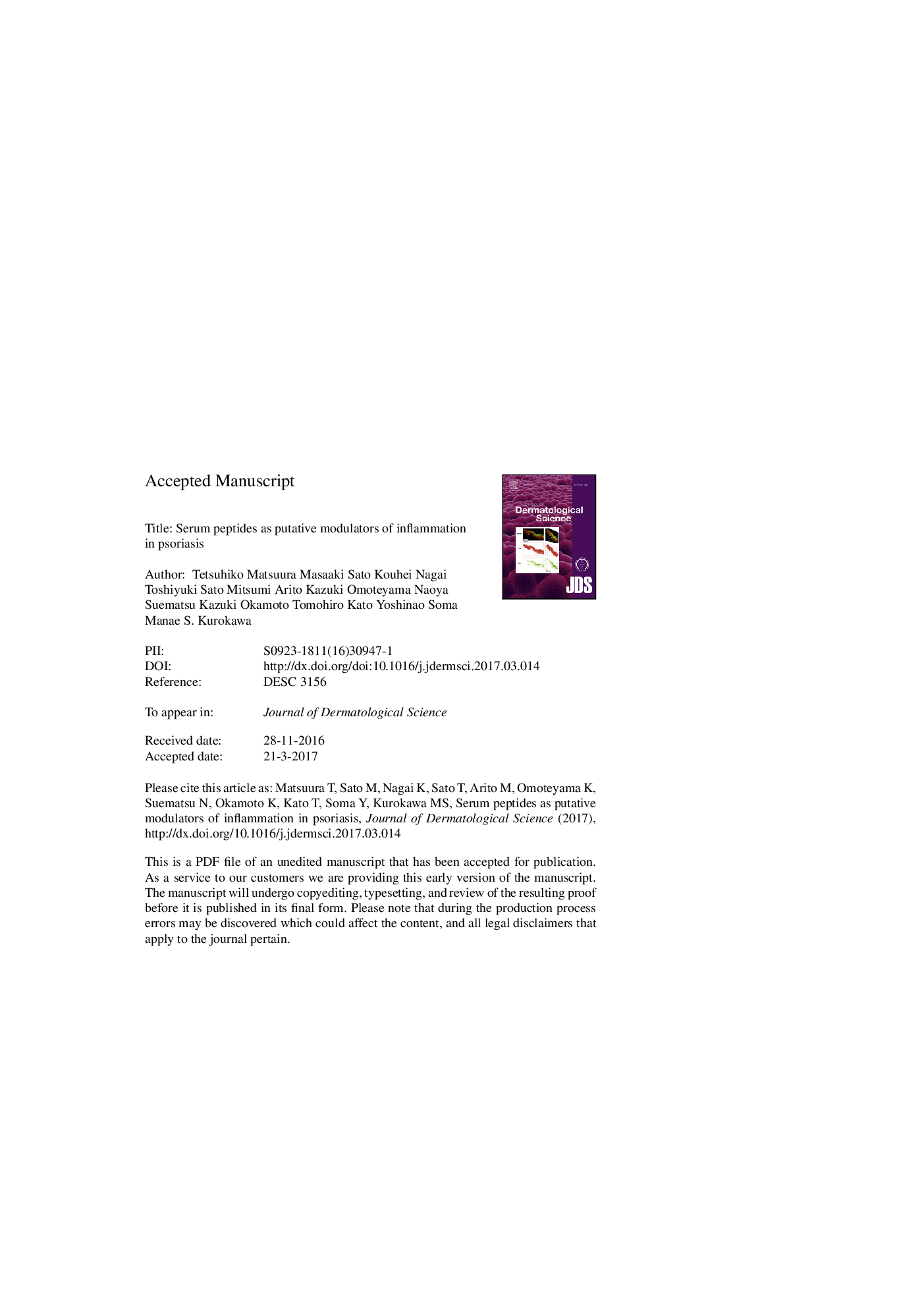| Article ID | Journal | Published Year | Pages | File Type |
|---|---|---|---|---|
| 5649118 | Journal of Dermatological Science | 2017 | 50 Pages |
Abstract
The results suggested that some serum peptides are involved in the pathophysiology of psoriasis, regulating the secretion of inflammatory chemokines and an antimicrobial protein. The modulation of serum peptides may be a potential therapeutic strategy for psoriasis.
Keywords
FLGMCP-1IL-1RANSAIDSCCR2MTXFibrinogen alpha chainMPVCyAPSLTGFαSHBGIMQCCL20ELRDermal microvascular endothelial cellsTNFDickkopf-related protein 1GROαMMPPSASPVDkk-1FpApsoriatic arthritisInterleukin 1 receptor antagonistHuman leukocyte antigenHLAmatrix-assisted laser desorption/ionization time-of-flight mass spectrometrystandard deviationImiquimodPASItransforming growth factor alphaEnzyme-linked immunosorbent assayELISANon-steroidal anti-inflammatory drugsAtopic dermatitisDendritic cellsCiclosporinMIFMass spectrometryMacrophage migration inhibitory factorVascular endothelial growth factorVascular Endothelial Growth Factor (VEGF)tumor necrosis factorfibrinopeptide Afilaggrinmatrix metalloproteinaseMALDI-TOF/MSMethotrexateMethioninesex hormone binding globulinPrednisolonemonocyte chemoattractant protein 1C-reactive proteinCRPPyroglutamatepsoriasis vulgarishigh-performance liquid chromatographyHPLChealthy controlglutamateglutamine
Related Topics
Health Sciences
Medicine and Dentistry
Dermatology
Authors
Tetsuhiko Matsuura, Masaaki Sato, Kouhei Nagai, Toshiyuki Sato, Mitsumi Arito, Kazuki Omoteyama, Naoya Suematsu, Kazuki Okamoto, Tomohiro Kato, Yoshinao Soma, Manae S. Kurokawa,
